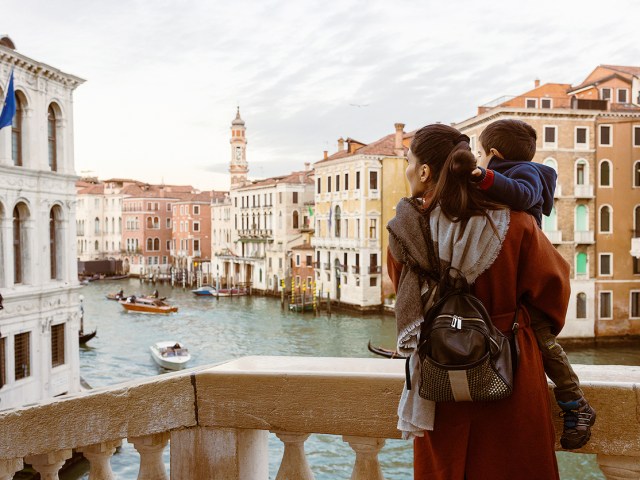Obtaining an ancestral passport can open up doors for your future travels or even give you the possibility of moving abroad. According to the State Department, roughly 9 million Americans currently live abroad, and that number is only climbing. More than 50 countries currently offer citizenship by descent, which gives those who qualify through their ancestry dual citizenship, the right to live and work in another country, and potentially easier access to neighboring countries. Wondering how to qualify? Below, discover helpful tips about getting dual citizenship and a foreign passport through your heritage.
What’s the Process?

The path to dual citizenship isn’t always quick and easy. A hefty load of documentation — including original birth certificates, death certificates, and marriage certificates — is often required to prove your lineage. Administrative and processing fees play a major role, as does the general wait time for application processing and approval. If you have the motivation and the patience, however, hard work can pave the way to a second citizenship.
Are You Eligible?

Tracing your family roots to a certain country is, unfortunately, not enough to qualify for jus sanguinis, or the right to citizenship through blood. Of the 50 countries offering dual citizenship, some have stricter rules than others. For example, countries like Brazil, France, and Mexico require that one of the applicant’s parents be a citizen at the time of the applicant’s birth, while other countries, like Italy, have more lenient standards. The process for each country will vary, so it’s best to research the country’s procedures for which you think you qualify.
With that in mind, here are four countries that offer more straightforward paths for those who qualify for citizenship by descent.
Italy

Italy is one of the most lenient countries when it comes to obtaining a passport through your heritage, which is good news for the 18 million people in the U.S. who identify as Italian-Americans. Eligible applicants must have an Italian ancestor, but it doesn’t have to be a parent or even a grandparent — Italy allows applicants to claim citizenship as long as they have a great-great-grandparent who was an Italian citizen. While this could be welcome news for Americans who are three times removed from their Italian ancestors, it does mean they need to prove their relation to each generation through original birth, death, and marriage certificates. And there are certain caveats and restrictions to be aware of, so be sure to do your research.
Once the paperwork is complete, there are several application options. The fastest route is to live in Italy for a few months while you apply — a great option for those who want to fast-track citizenship and have the flexibility and financial means. However, most people apply through their local consulate — a process that can take up to three to five years due to the long wait in processing times. Another option is to hire a lawyer who can present your case in Italy, which will knock a few years off your wait time, but will cost you in attorney fees.
Spain

Spain recently passed legislation that allows you to apply for citizenship by descent up to three generations removed, making now a great time to pursue Spanish citizenship. If one of your parents, grandparents, or even great-grandparents are or were Spanish citizens, you are eligible to apply through jus sanguinis. You are also eligible to apply for citizenship if you were adopted by a Spanish citizen before your 18th birthday.
To prove your lineage, you will need to gather birth certificates of your relatives, as well as marriage and death certificates if applicable. The application approval time can take two to three years. However, like Italian citizenship, having Spanish citizenship (which comes with a coveted EU passport) could be worth the wait, as it will allow you to live or work unrestricted in any of the 27 European Union member countries. The cost to apply for and receive Spanish citizenship is also relatively inexpensive. You can expect to spend around 100 euros on the application fee.
Ireland

As long as one of your parents or grandparents was an Irish citizen at the time of your birth, you’re automatically eligible for Irish citizenship. In some cases, having a great-grandparent who was an Irish citizen can pave the way, as well.
To claim your citizenship via a parent or grandparent, you must first register your birth at the Foreign Birth Register. If it’s your great-grandparent through which you are claiming citizenship, your parents must have registered themselves with the Foreign Birth Register prior to your birth. After you register, you can complete an application and apply with supporting documents. Assuming your paperwork is approved, you’ll have your Irish passport in around 30 months — allowing you to seamlessly travel throughout the EU.
New Zealand

New Zealand may be about as far away as you can get from the U.S., but you’ll be handsomely rewarded if you make the big leap to acquire dual citizenship. This island nation is a great choice for people who want access to pristine nature, epic hiking, world-class wine, and fascinating Māori culture.
New Zealand’s pathway to citizenship is one of the quickest if you have a parent who’s already a citizen. Fill out the application and provide the documentation to show one of your parents is (or was) a citizen, pay the $410 fee (as of 2024), and you’ll have your passports in around two months. Not only will you have the right to live and work in New Zealand, but you’ll also possess one of the world’s most powerful passports, allowing for visa-free or visa-on-arrival access to 189 countries.
More from our network
Daily Passport is part of Inbox Studio, an email-first media company. *Indicates a third-party property.
















